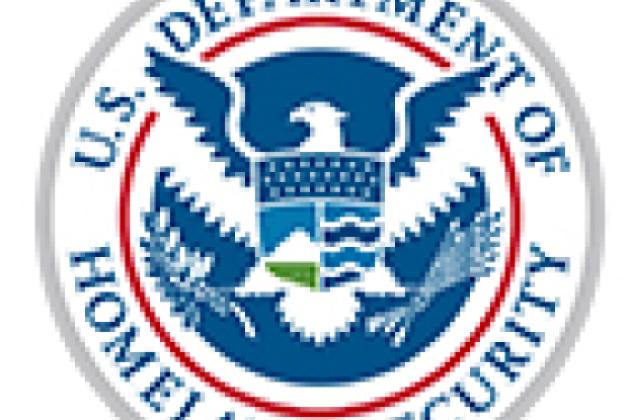- Economics
- Law & Policy
- Immigration
Massive border security and E-Verify are central provisions of the Senate immigration bill, and they are supported by many in the House. Both provisions signal how wrong-headed much of the immigration-reform effort has become.
E-Verify is the real monster. If this part of the bill passes, all employers will be forced to use the government-run, Web-based system that checks potential employees' immigration status. That means, every American will have to obtain the federal government's prior approval in order to earn a living.
E-Verify might seem harmless now, but missions always creep and bureaucracies expand. Suppose that someone convicted of viewing child pornography is found teaching. There's a media hoopla. The government has this pre-employment check system. Surely we should link E-Verify to the criminal records of pedophiles? And why not all criminal records? We don't want alcoholic airline pilots, disbarred doctors, fraudster bankers and so on sneaking through.
Next, E-Verify will be attractive as a way to enforce hundreds of other employment laws and regulations. In the age of big data, the government can easily E-Verify age, union membership, education, employment history, and whether you've paid income taxes and signed up for health insurance.
The members of licensed occupations will love such low-cost enforcement of their cartels: We can't let unlicensed manicurists prey on unsuspecting customers, can we? E-Verify them! And while the government screens employee applications, they can also check on employers' compliance with all sorts of regulations by looking at the job applications they submit for verification.
E-Verify proponents imagine some world in which a super-accurate government database tracks each person's legal status, and automatically enforces straightforward rules. Maybe on Mars. In our world, immigration and employment law is a complex mess, and our government's website-building capacity (see under: "health-insurance exchanges") can't possibly handle millions of people who are trying to evade the law. Permission to work inevitably will rely at least in part on the judgment calls of an army of bureaucrats.
Political abuse is just as inevitable. Consider Catherine Engelbrecht, reportedly harassed by the Federal Bureau of Investigation, the Internal Revenue Service, the Bureau of Alcohol Tobacco and Firearms and the Occupational Safety and Health Administration, all for starting a tea-party group. But the E-Verify bureaucrats would never cause her trouble in getting a job or hiring someone, right?
Soon, attending a meeting of a group that is a bit too enthusiastic about the Constitution or gun rights—or being arrested at an Occupy Wall Street rally—could well set off a "check this person" when he applies for a job. If the government can stop you from working, how can you be free to speak out in opposition?
It's the need for prior permission rather than ex-post prosecution that makes E-Verify so dangerous. A simple delay in processing or resolving an "error" in your data is just as effective as outright denial, cheap to do, and easy to cover up.
Every tyranny silences opponents by controlling their ability to earn a living. How is it that so many supposedly freedom-loving, small-government Republicans want to arm our nation's politicized bureaucracy—fresh from the scandals at the IRS and elsewhere—with the power to do just that? Why are we so afraid of immigrants that we would jeopardize this most basic guarantee of our political liberties?
Many opponents of immigration worry that immigrants will overuse expensive social services. The fear is misplaced. The Congressional Budget Office estimates more than $100 billion of net fiscal benefit from the limited expansion of immigration that's allowed by the Senate bill. And this fear does not make any sense of the system's preferences for current citizens' family members—who are less likely to work and more likely to consume services—over workers and entrepreneurs.
Perhaps some Republicans worry that immigrants will vote Democratic. But then limiting entrepreneurs and workers makes even less sense. These Republicans should have confidence that their ideas on freedom will attract ambitious, hard-working migrants.
Others say they want to protect the wages of American workers. Like all protectionism, that is demonstrably ineffective. Migrants come for jobs Americans won't or can't do, and businesses build factories abroad if workers can't come here.
The Senate bill promises higher caps for "guest workers." Ponder what "guest worker" really means. Come to America, pick our vegetables, clean our bathrooms and tend our gardens at the invitation of a powerful employer. Pay taxes. And when your visa runs out, go back where you came from—there is no place for you here. This is how Middle East sheikdoms treat Filipino maids and Palestinian construction workers. Is this America?
In the current vision of immigration reform, millions will still be trying to sneak in, and millions more will remain here working illegally. E-Verify and the border security wall prove it. If people could work legally, there would be no need for a system that endangers everyone's liberty to "verify" them. And there would be no need to build a $45-billion monument to imperial decline— our bid to outdo the walls of Hadrian, China and Berlin—to stop them.
Here is the crucial question for genuine immigration reform: How do we respond when someone says, I have heard of your freedom. I am tired of the corrupt police in my country, the bought-off courts, the oppression of rulers, the tyranny of the religious or ethnic majority. I want to join the one country on earth defined by an idea, not by conquest, religion or ethnic identity. No, I don't have a special skill or a strong back useful to your politically connected employers. I want to come, drive a cab, open a convenience store in a poor neighborhood, work long hours, pay taxes, send my children to school and, eventually, vote.
The answer in the Senate bill and emerging House debate remains: Stay home. America is closed.
Mr. Cochrane is a professor of finance at the University of Chicago Booth School of Business, a senior fellow at the Hoover Institution, and an adjunct scholar at the Cato Institute.
















